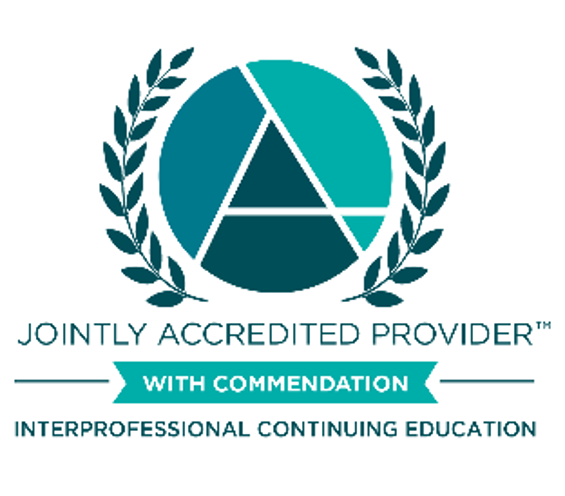
Aging Well with HIV: Care Transitions for Older People Living with HIV
This two-module activity addresses the current state of HIV in the US and healthy aging considerations for persons living with HIV (PWH). Also included are brief vignettes of actual patient interviews. Their perspectives will provide insight into the daily challenges and quality of life issues that can occur while living with HIV.
In module 1, our experts discuss an overview of aging considerations for PWH, transitioning between care providers, research and equity considerations, and mental health. Module 2 addresses creating an Age-Friendly Health System, advance care planning and health care proxies, and transitions between care settings.
The growing number of PWH over age 50 requires research, to develop a more comprehensive understanding of the health consequences of HIV in older individuals. The intent of this CME program is to help clinicians improve the health of older PLWH.
Target Audience
Infectious disease specialists, geriatricians, primary care and internal medicine physicians, NP/PAs, and nurses
Learning Objectives
Upon completion of the educational activity, participants should be able to:
1. Describe three ways in which transitioning healthcare from one caregiver to another places psychosocial burdens on aging PWH.
2. Evaluate several patient-facing challenges as PWH grow older, including anxiety over changing clinicians, misperceptions on sexual health, and mental health considerations.
3. Review systemic challenges to care transitions in older PWH, particularly surrounding advance care planning, referral, monitoring, and communication.
4. Implement strategies that promote consistent communication within interprofessional and multidisciplinary care teams.
This program is supported by an educational grant from Gilead Sciences, Inc.
Archana Asundi, MD
CME Course Director
Assistant Professor
Boston University Chobanian & Avedisian School of Medicine
Department of Medicine, Infectious Diseases
Boston Medical Center
Boston, MA
Dr. Asundi receives research support from Theratechnologies, DayZero Diagnostics, Gilead Sciences, Inc. and ViiV/GlaxoSmithKline. Dr. Asundi serves on the Advisory Board for Gilead Sciences, Inc.
Michael Dolak, RN
NCPD Course Advisor
Instructor
Boston University Chobanian & Avedisian School of Medicine
Department of Medicine, Geriatrics
Boston Medical Center
Boston, MA
Mr. Dolak has no relevant financial information to disclose.
Paul B Goulet
Chair
Community Engaged Research Council
Providence/Boston CFAR
Independent Health Care Consultant
Ft Lauderdale, Florida
Mr. Goulet has no relevant financial information to disclose.
Kaila Rudolph MD, MPH, MBE
Assistant Professor
Boston University Chobanian & Avedisian School of Medicine
Department of Psychiatry, Consultation Liaison and Geriatric Psychiatry Services
Boston Medical Center
Boston, MA
Dr. Rudolph has no relevant financial information to disclose.
Irina Vovnoboy, MD
CME Co-Course Director
Assistant Professor
Boston University Chobanian & Avedisian School of Medicine
Department of Medicine, Geriatrics
Boston Medical Center
Boston, MA
Dr. Vovnoboy has no relevant financial information to disclose.
 In support of improving patient care, Boston University Chobanian & Avedisian School of Medicine is jointly accredited by the Accreditation Council for Continuing Medical Education (ACCME), the Accreditation Council for Pharmacy Education (ACPE), and the American Nurses Credentialing Center (ANCC), to provide continuing education for the healthcare team.
In support of improving patient care, Boston University Chobanian & Avedisian School of Medicine is jointly accredited by the Accreditation Council for Continuing Medical Education (ACCME), the Accreditation Council for Pharmacy Education (ACPE), and the American Nurses Credentialing Center (ANCC), to provide continuing education for the healthcare team.
Boston University Chobanian & Avedisian School of Medicine designates this enduring material for a maximum of 2 AMA PRA Category 1 Credit(s)™. Physicians should claim only the credit commensurate with the extent of their participation in the activity.
Nursing Contact Hours: 2 of which 0 are eligible for pharmacology credit
Available Credit
- 2.00 AMA PRA Category 1 Credit™
Boston University Chobanian & Avedisian School of Medicine designates this Enduring activity for a maximum of 2.00 AMA PRA Category 1 Credit™. Physicians should claim only the credit commensurate with the extent of their participation in the activity.
- 2.00 ANCC
- 0.00 ANCC Pharmacology
- 2.00 Participation

 Facebook
Facebook X
X LinkedIn
LinkedIn Forward
Forward